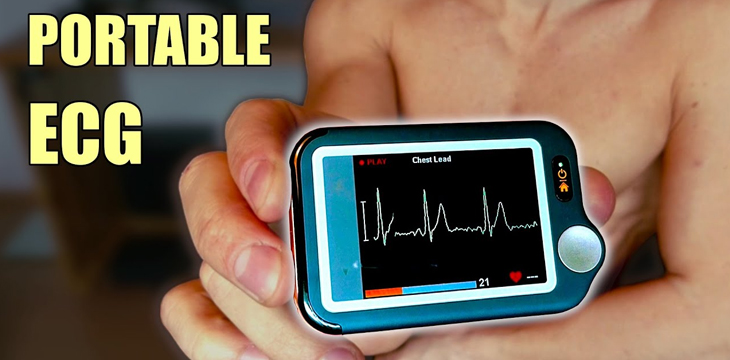Your Health..Our Mission..
For Emergency Call +91-9167870733

Portable ECG
A portable ECG (electrocardiogram) device, also known as a handheld ECG or a mobile ECG monitor, is a compact and portable device used to record and analyze the electrical activity of the heart. It allows for convenient and non-invasive monitoring of the heart's rhythm and can be used in various settings, including clinics, hospitals, ambulances, and even at home.
Here are some key features and benefits of portable ECG devices:
- Portability and convenience: Portable ECG devices are compact, lightweight, and designed for easy portability. They are often handheld and battery-powered, allowing for convenient use in different locations. The small size and portability make them ideal for ambulatory monitoring or for patients who need continuous or periodic ECG monitoring outside of traditional healthcare settings.
- Non-invasive monitoring: Portable ECG devices are non-invasive, meaning they do not require any invasive procedures or electrode placement directly on the heart. Typically, the device has electrodes that are attached to the patient's chest, limbs, or hands, and it records the electrical signals produced by the heart as it beats. This makes it a safe and comfortable tool for patients of all ages.
- Immediate results: Portable ECG devices provide immediate results, allowing healthcare professionals to quickly assess the heart's rhythm and identify any abnormalities. The recorded data is displayed on the device's screen or transmitted wirelessly to a computer or mobile device for real-time analysis. This quick feedback can aid in prompt diagnosis and timely intervention.
Portable ECG devices have revolutionized cardiac monitoring by providing convenient and non-invasive ways to assess the heart's electrical activity. They offer flexibility, immediate results, and the ability to monitor the heart's rhythm outside of clinical settings, promoting early detection of heart conditions and enhancing patient care.




